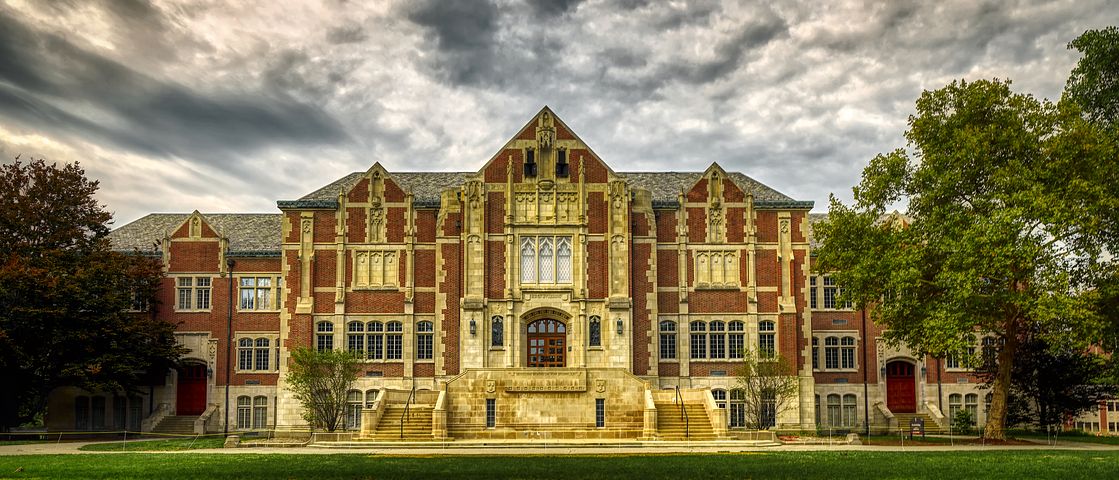
The Road to College
By May S. Ruiz
Happy New Decade! 2019 was quite eventful for college admissions, with the bribing scandal dominating the news for months. This brought into light the inequity in the process – not only are students from wealthy backgrounds able to take SAT prep courses, they can also hire counselors who will manipulate the system further.
The University of California and Cal State systems subsequently announced that they will no longer require students to submit ACT or SAT test scores with their application. More universities may follow suit.
During NACAC’s (National Association for College Admission Counseling) National Conference, the organization decided to make changes to their Code of Ethics and Professional Practices (CEPP) as well as bylaws, with the removal of certain provisions:
“Colleges must not offer incentives exclusive to students applying or admitted under an early decision application plan. Examples of incentives include the promise of special housing, enhanced financial aid packages, and special scholarships for early decision admits. Colleges may, however, disclose how admission rates for early decision differ from those for other admission plans.”
“College choices should be informed, well-considered, and free from coercion. Students require a reasonable amount of time to identify their college choices; complete applications for admission, financial aid, and scholarships; and decide which offer of admission to accept. Once students have committed themselves to a college, other colleges must respect that choice and cease recruiting them.”
“Colleges will not knowingly recruit or offer enrollment incentives to students who are already enrolled, registered, have declared their intent, or submitted contractual deposits to other institutions. May 1 is the point at which commitments to enroll become final, and colleges must respect that. The recognized exceptions are when students are admitted from a waitlist, students initiate inquiries themselves, or cooperation is sought by institutions that provide transfer programs.”
“Colleges must not solicit transfer applications from a previous year’s applicant or prospect pool unless the students have themselves initiated a transfer inquiry or the college has verified prior to contacting the students that they are either enrolled at a college that allows transfer recruitment from other colleges or are not currently enrolled in a college.”
As with all new rules and changes, no one is entirely sure how students or the colleges are affected. Already, there are concerns that these open the doors wide open for poaching – critics of the changes worry that colleges and universities will attempt to recruit students even after the student made their school decision. And that some schools may actually raise their required deposits to prevent students from changing their choice.
One upside is that the changes may allow smaller schools to compete with big-name colleges and universities. Now that students aren’t bound to matriculate, colleges may offer students varying financial aid packages giving students the opportunity to choose the best available option.
You and your children have to do your research diligently this admissions process.

By this time, winter break is over and students are heading back to school I hope your children got the opportunity to de-stress and refresh, enjoyed time away from school, and just delighted in being teenagers. The years between middle and high school aren’t that long and, once gone, will never come back. Give your children the chance to relish this period in their lives.
It amazes me how much driving parents do during the school year taking their kids to school, after-school sports practice and events, AP or SAT classes, weekend music lessons, etc. If all that running around makes parents stressed out I can only imagine how it must be for children who are juggling all these activities on top of going through puberty.
Parents can help their children by showing their support and guiding them through their high school years. Starting preparations for college admissions in 9th grade, instead of during the spring of your children’s junior year makes this process more manageable.
Private high schools have counselors to give personal attention to students during the college application process. But many public schools do not have the staff for individualized guidance and it falls largely to parents to help their children.
There are independent counselors you can consult for advice as you and your children navigate the admissions process. Sometimes just having someone you can call to answer some of your concerns or questions takes off much of the burden, most especially this year with all the changes taking place.
Greg Kaplan, a Southern California native, offers counseling via Skype. He has written a book called Earning Admission: Real Strategies for Getting into Highly Selective Colleges that enlightens you on the process; he also offers college counseling workshops in the San Gabriel Valley.
An educational service called CollegeVine, based in Cambridge, Massachusetts, whose counselors are current university students, is also a good resource. These peer mentors can give your children the most current information about what the colleges are looking for since they are still in school themselves. Consultation is also done via video conferencing.
FRESHMAN
Typically, the beginning of the year marks the halfway point in the schoolyear. First semester grades will soon be released, if they had not been sent out yet. If your 9th graders’ marks are not great, they would need to use the second semester to better them as it’s the end-of-year grades that show on the transcript. A student’s GPA is a very important, if not the single most influential, component of the college application. With some universities now eliminating ACT and SAT requirements, admissions officers only have your children’s GPA to gauge their college-readiness and success.
Make sure your children are continuing their extra-curricular activities in arts or sports, with concentration on one or two where they excel. Finding something they are truly passionate about and doing it throughout their high school years show their commitment. My daughter realized she loved acting only when she reached 11th grade. Thus, she didn’t have enough time to engage in it, and her resume reflected that.
SOPHOMORE
This is your student’s second year and by this time he/she should have fully transitioned into high school. He/she needs to put extra effort into weak subjects and solidify grades for the second semester. Your children should continue their focus on academic performance skills, sports participation and arts involvement. They should also start studying for the PSAT (www.collegeboard.com). Taking a practice PSAT in 10th grade gives them the chance to identify weaknesses then work on them before taking the NMSQT (www.nationalmerit.org) in 11th grade. At my daughter’s alma mater, students meet with their grade level dean in the winter of 10th grade to discuss year-end testing options and junior-year course options.
Sophomores enrolled in Advanced Algebra and Pre-Calculus register to take the SAT II Math Level 2 exam in June of their sophomore year. Those enrolled in Functions, Trigonometry and Advanced Algebra (FTAA) take this same exam in June of their junior year, after completing the Advanced Topics and An Introduction to Calculus-Honors (ATIC-Honors) course. Sophomores who are thinking of going into science, medicine, architecture, and engineering are encouraged to take the SAT II exam in Chemistry in May or June of their sophomore year. Your student should also start lining up summer activities.

JUNIOR
The second semester of junior year is significant as it is the beginning of the college application process. From their research, students are now ready to start planning a visit to colleges. They can even do their initial campus virtual tours online www.campustours.com, www.CollegeProwler.com, www.SmartCollegeVisit.com, www.YOUniversity.com. Counselors usually recommend that students use their spring break to go to several different types of schools. A good list should include a small liberal arts college, a medium-sized research university, and a large state university to let them have a feel for what “small” or “large” school means.
Your children should be able to experience firsthand if a large city like New York makes them feel alive and vibrant, or if it totally overwhelms and scares them. They need to experience if a campus with 20,000 students is the right setting for them. While they don’t necessarily have to visit the schools they are actually considering applying to, this trip should give them ideas about what they are looking for in a university. Once they’ve established the elements they are looking for, they can start making a record of schools they would put on their list of colleges to apply to.
SENIOR
All college applications should have already been sent out for the January 1st regular decision/admission deadline. Some universities, like Georgetown, have a later deadline. Some schools also have ED (Early Decision) II. Parents should already have filed their income tax returns; get ready to submit FAFSA (www.fafsa.ed.gov). Apply for scholarships. There are several websites to help you with your search like www.scholarships.com, www.collegexpress.com, www.scholarships360.org, www.affordablecollegesonline.org/graduating-debt-free.
As much as I am tempted to say “Tell your kids to breathe a sigh of relief because the hard part is over,” the reality is that they will be anxious because all that’s left now is the wait. And, oftentimes, the waiting is more difficult than the application process. Just be there for your kids to remind them that they have done a great job and they should let the admissions professionals do theirs.
The months from January through March can still be a time for your children to do something to help their cause. Mid-January is when high schools get their first semester grades finalized. If your student’s mid-year report is particularly spectacular, this could be a very good development especially if he/she is applying to a highly selective college. When your children’s high school sends the grades, have your children follow up with an email to the area representative telling them about their hard work and interest in that college.
If your children have been deferred at a college when they applied through early action or early decision, it is advisable for them to send in an additional teacher recommendation, but only if this supports their application. Likewise, if your student has received any notable honors or made any significant achievement, he/she should let the admissions officers know by email.
Having done all these, you and your children will now just have to wait patiently for the process to play itself out.






